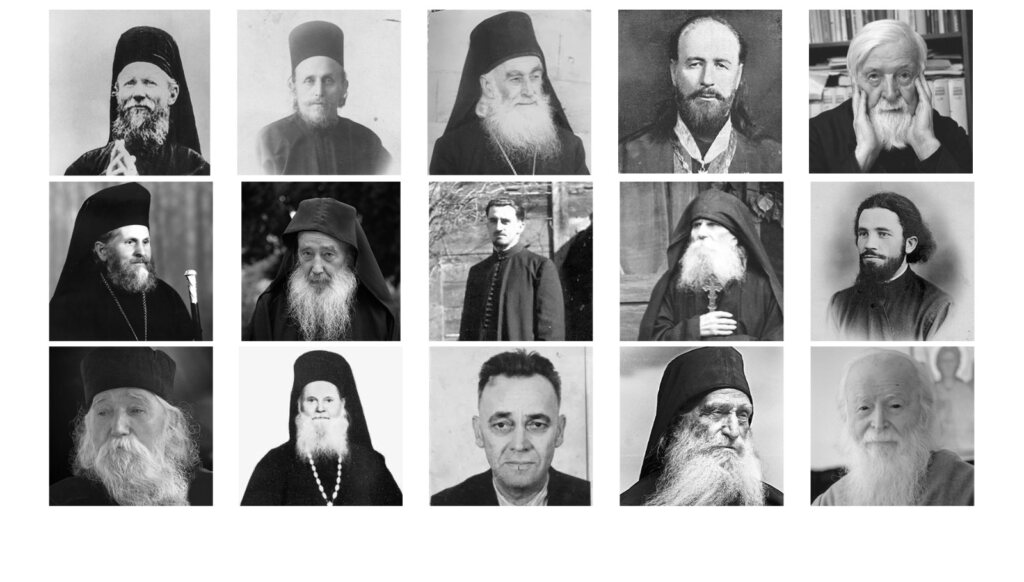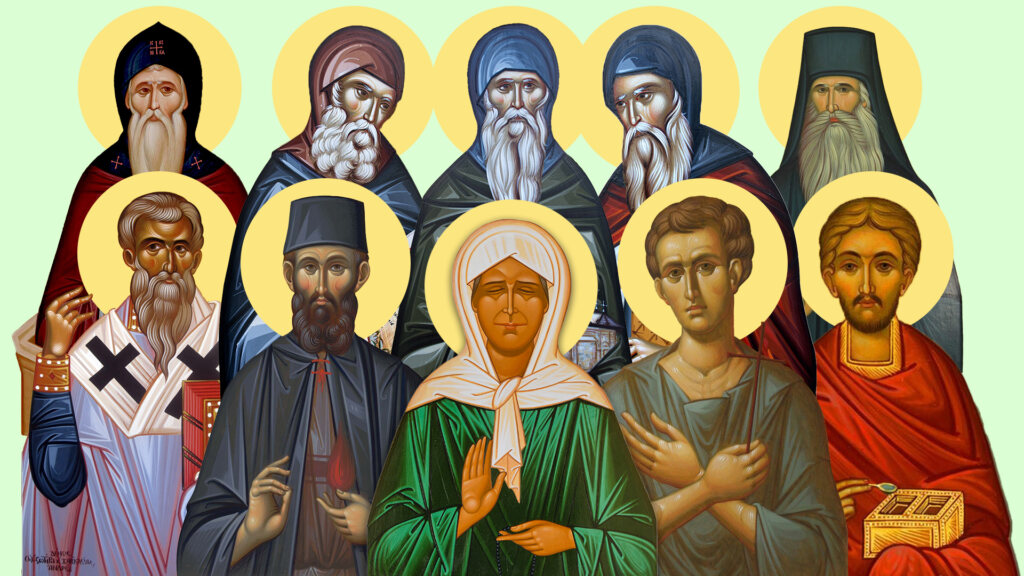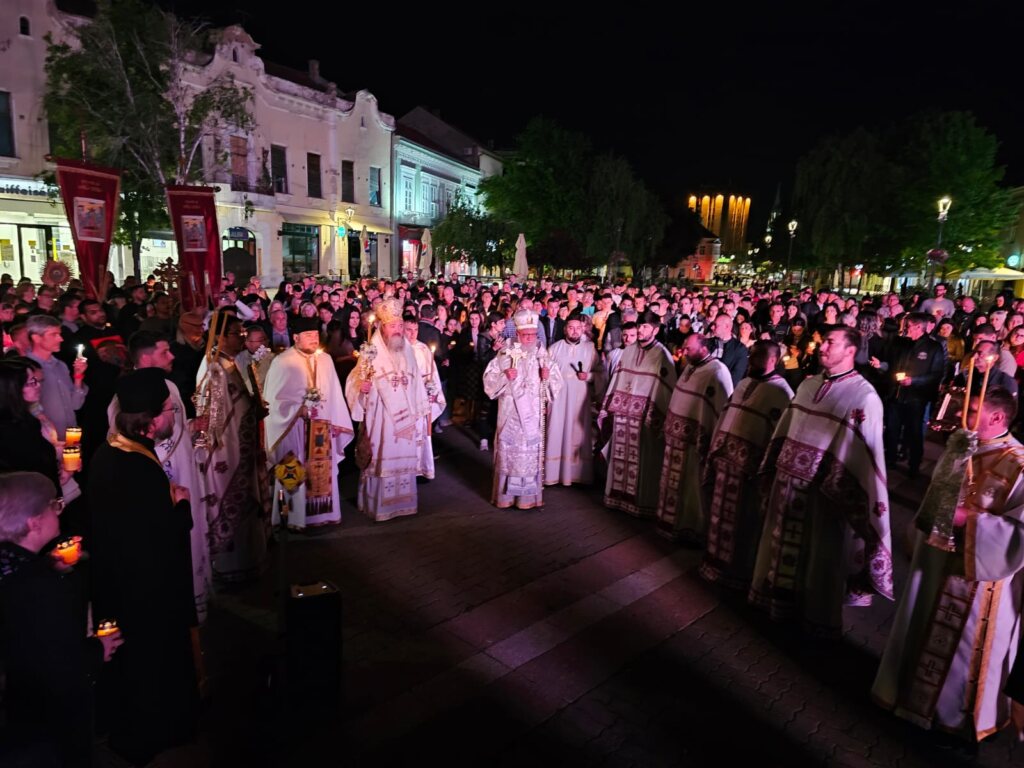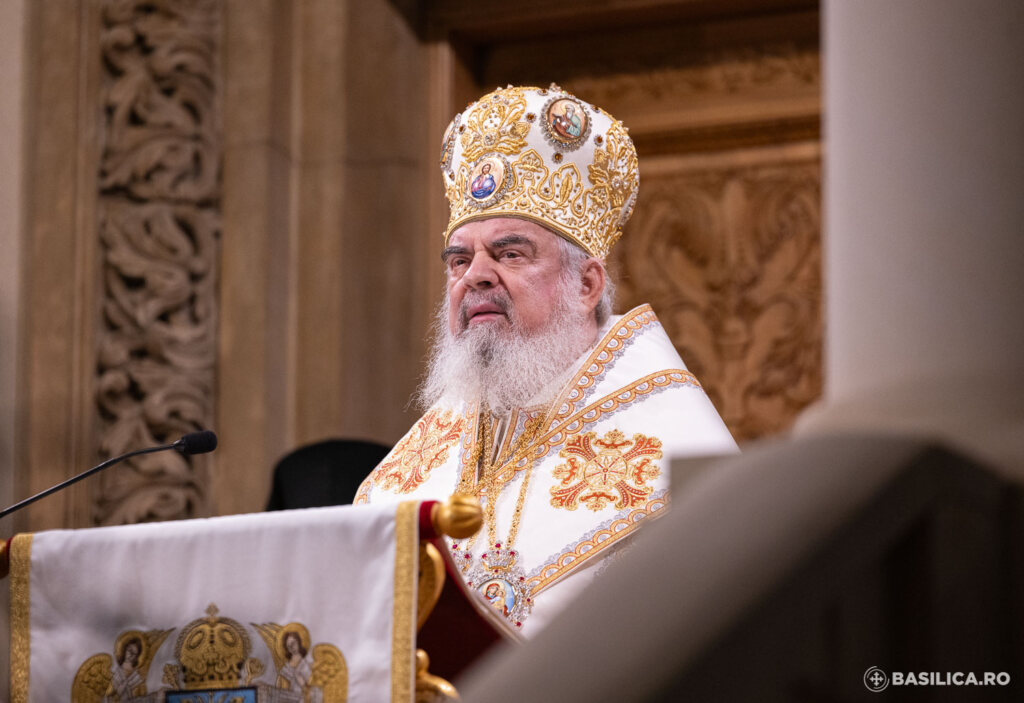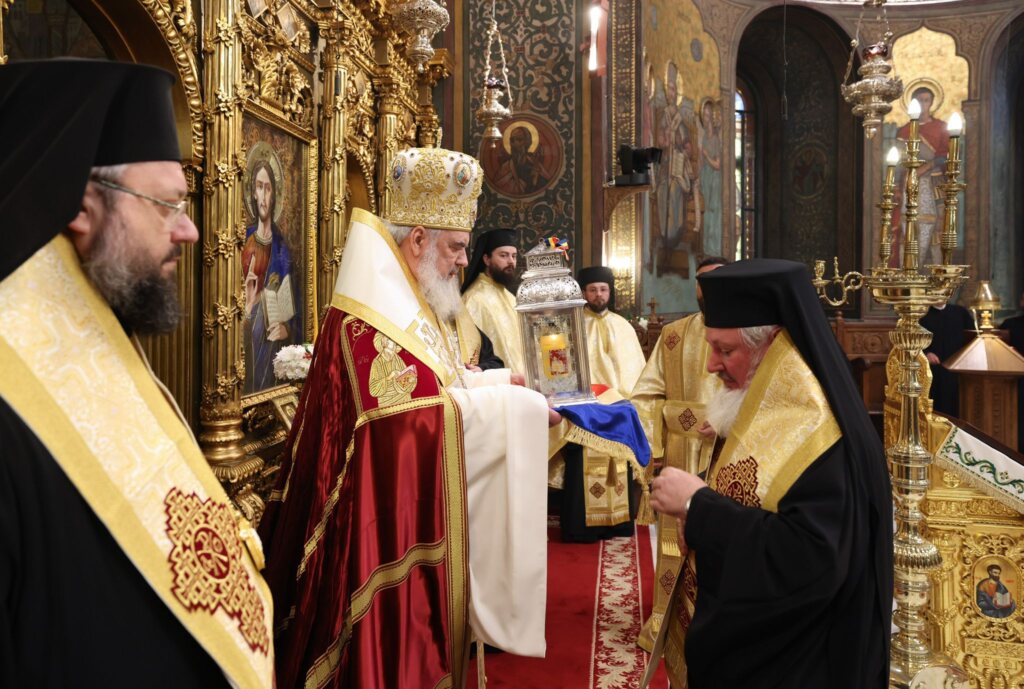‘Uprooted from their native land, Romanians in America are looking for spiritual roots in the Church of Christ,’ the Romanian Orthodox Metropolitan of the Americas, Nicolae Condrea, said in an exclusive interview with Basilica.ro.
‘Not many are those who confess that they did not go to church in Romania or went only seldom, who therefore did not have a religious life, but who, once they arrived in America, seek a spiritual balance for themselves and their family. This balance can only be found in the Church,’ the Romanian Metropolitan of America noted.
His Eminence Metropolitan Nicolae Condrea, who has been close to Orthodox Romanians in America for over 17 years, spoke in the Basilica.ro interview about how the mission in the diaspora differs from the ecclesial reality in Romania.
He stressed that building the Church in the soul is a priority, especially because ‘being a Christian in today’s America, living your Orthodox Christian faith is a challenge that we must understand, assume and struggle to overcome.’
Metropolitan Nicolae expressed his hope that this year’s events evoking the Romanian village will be ‘an occasion for a return to origins, to remember village traditions and customs, which are rooted in the spirituality of the Romanian people.’
Basilica.ro: Your Eminence, to what extent does the diaspora mission differ from ecclesial reality in our country? What are the main challenges you face in the US?
Metropolitan Nicolae Condrea: To understand the mission in the diaspora, and more precisely in America, it is appropriate to refer to the parable of the lost sheep in the Gospel of Luke 15:2-7: But the Pharisees and the teachers of the law muttered, “This man welcomes sinners and eats with them.” Then Jesus told them this parable: “Suppose one of you has a hundred sheep and loses one of them. Doesn’t he leave the ninety-nine in the open country and go after the lost sheep until he finds it? And when he finds it, he joyfully puts it on his shoulders and goes home. Then he calls his friends and neighbours together and says, ‘Rejoice with me; I have found my lost sheep.’ I tell you that in the same way there will be more rejoicing in heaven over one sinner who repents than over ninety-nine righteous persons who do not need to repent.
After this parable, the Saviour adds two more moral stories to exemplify the same joy of the heavenly Father: the parable of the lost coin and the parable of the prodigal son. Nothing can be compared to the joy of the father who believed his son was lost or even dead among strangers and who again has the opportunity to welcome him in his arms.
But to fully understand this joy we must also be in the situation of the father who loses his son or the shepherd whose sheep is lost. In this situation are we all, hierarchs and priests, who were called to mission among the Romanian Orthodox brothers and sisters scattered around the world.
We receive this mission from God and assume it as such, believing that the stray sheep is waiting for us to guide it back to the stable. Our Romanian brothers and sisters have left their country seeking for a more prosperous life. They are all struggling for this better life.
Our mission among them refers to several questions: In which moment of this struggle for a better life can the shepherd’s voice intervene? To which extent is it listened to and how does it echo in the souls of those pastored? How many of them recognize it to be the voice of the Shepherd of All? What are the pastoral means for the shepherded to listen to the shepherd’s voice?
The fundamental difference between our mission in the diaspora and the one at home is that it refers to this search for the lost Romanian Orthodox far from the Church and the nation. We were called by God to seek them, therefore we have to learn what pastoral means are needed to accomplish this mission.
We start by organizing services in the cities where we identify more families of Orthodox Romanians. Then we begin to build the Church in the souls, urging them to learn about and live the Christian faith, to follow the church ordinances, to offer a Christian education to children and young people.
We must not forget the lonely or the sick. We first try to form a Christian community, a Christian family in which each member may take his or her responsibilities according to God’s gifts and calling. Then we plan to edify the Church of walls at the right time and according to the possibilities of each community.
Undoubtedly, we encounter many obstacles in this process, with the most important ones being connected to the first part of the mission, building the Church in the soul. Being a Christian in America today, living your Orthodox Christian faith is a challenge that we need to understand, to assume, and to struggle to overcome.
In Elder Arsenie Papacioc’s words, this spiritual struggle requires much discernment and courage: Who are we? From what position do we relate to the world that lacks God more and more? Which is the place that I offer to God in my life? Our spiritual life, our Christian life depends on the answer to these questions.
Basilica.ro: What do Romanians lack most in the US as regards their identity? What is the greatest longing they have in their soul? Is it related to the traditions of the Romanian village? How does the Church manage to address these shortcomings?
Metropolitan Nicolae Condrea: In the Church, Christians meet the bishop and the priest, and await a word of comfort and courage, await advice and guidance to continue their more or less corporate life outside the Church. Uprooted from their native land, Romanian Orthodox Christians in America are looking for other spiritual roots in the Church of Christ.
Not many are those who confess that they did not go to church in Romania or did go only rarely, those who did not have any religious life, but who, once they came to America, sought a spiritual balance for themselves and their family. This balance can only be found in the Church. The meeting with them explains the parable of the lost sheep and we follow the Saviour’s example of lifting up the rational sheep and rejoicing in finding it.
The evocation of the Romanian village in this Solemn Year will be an occasion for a return to origins, a remembrance of the village traditions and customs rooted in the spirituality of the Romanian people. This remembrance will be an opportunity to look into the city life we live in America with its good things and less good things.
The agenda of the Deanery Assemblies that we are organizing this year in America includes several topics dedicated to the Romanian village, such as the presentation of some profiles of priests, teachers or teachers. We hope that the nostalgia of the Romanian village will give us the opportunity to rediscover the spiritual health we grew up with in Romania, in the village.
Basilica.ro: With Your Eminence’s goodwill, the Romanians in America will have the opportunity to see the photographs of ‘The Portrait of the Romanian Village’ Exhibition. What do you think will be the impact on Romanian communities?
Metropolitan Nicolae Condrea: We are grateful to His Beatitude Patriarch Daniel for offering his blessing to display a part of The Portrait of the Romanian Village Exhibition in our parishes in America. The occasion will be offered, as I mentioned, during the convening of the Deanery Assemblies, but also at the patronal feasts of our parishes.
It will be a beautiful chance for all the believers who were born in the countryside to tell their children, grandchildren and great grandchildren about country life, to remember their childhood and youth spent in the natural village environment that gushes forth spiritual and physical health.
Basilica.ro: Please send a message to the Basilica.ro readers.
Metropolitan Nicolae Condrea: First of all, I would like to congratulate all the members of the Basilica Media Centre for the beautiful and fruitful 11-year activity. I also thank you for presenting the events in the two dioceses of the Romanian Orthodox Metropolis of the Americas.
I wish spiritual progress to all Basilica.ro readers and I urge them to use what they read on the Basilica.ro website for a Christian witness in the modern world.
Being a Christian means being a confessor, which requires knowledge, understanding, the experience of what God reveals to us and courage to preach to the world. God bless the endeavour of the labourers and the good thought of the readers!
Photography courtesy of Basilica.ro / Raluca Ene


